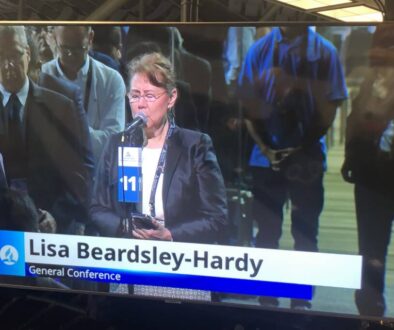German Church Leaders: Statement on GCAC17 Reconciliation Document
On Monday, 23 October, the North German and South German Unions released a joint statement on the 2017 Annual Council document, “Procedures for Reconciliation and Adherence in Church Governance: Phase II”, a document generated by General Conference leaders that asked presidents of all unions to sign a loyalty oath that would oblige them to resist “actions or initiatives” that would endanger the unity of the church. Not signing the document would have meant members would lose their right to speak and vote in the Executive Committee, as well as participation in subcommittees. The document was sent back to committee for further review.
What follows is not an exact translation, but paraphrased summaries of the points. Read the entire document translated into English here.
The statement by the German Unions expresses concerns about how the Reconciliation (Phase II) document was brought to the Executive Committee:We have already expressed our concerns about this document in the public debate of the Executive Committee. The following points describe our position:
- The document is highly controversial and inflammatory, imposing considerable restrictions on the functions and rights of union conference presidents, who are by policy ex officio members of the General Conference Executive Committee. It is unacceptable that a paper of fourteen pages (in English) was distributed only during the meeting to be read and digested there. It needed to be seen earlier for proper discussion.
- Although we know who the members of the “Unity in Mission Oversight Committee” are, it is not clear who the authors of “Procedures for Reconciliation and Adherence in Church Governance: Phase II” are. A request to Elder Wilson during the session to know who the authors of the document are went unanswered. Such a nontransparent procedure does not contribute to confidence.
The German Unions’ statement also questions the content of the “Reconciliation (Phase II)” document:
- Every organization lives and works by making and respecting rules and policies. Working Policy B95 says that the initiative for the kind of actions discussed here should come from the next higher organizational unit. In the case of a union conference, this would be the Executive Committee of the Division. This should be done first, before turning to the General Conference Executive Committee.
- Most importantly, a church thrives on a spirit of mutual trust and partnership. When there are differing opinions, punitive administrative procedures should be a last resort. We are observing a tendency at the General Conference to solve conflicts by such demands and procedures.
- To enforce an understanding of unity that is quite narrow (or ill-defined) restricts true diversity, as well as raising questions of freedom of conscience. We do not wish to participate in that.
- The document doesn’t give clear reasons to show that the unity of the church is threatened. We see a danger of arbitrariness, if the criteria for assessing the dangers to unity are subjective and unclear.
- Presidents of unions are, according to constitution and bylaws, ex officio members in the General Conference Executive Committee. Any possible disenfranchisement of such members must be studied by legal advisors.
Summary
In general, we don’t consider “Procedures for Reconciliation and Adherence in Church Governance: Phase II” a helpful contribution toward a cooperative relationship with the General Conference, one that is based on trust; but we find it rather an effort to centralize the leadership of the world church. We feel we need more opportunity for an open and free dialogue on these issues.
Here is an English translation, courtesy of AT columnist Alvin Masarira. The entire response statement can be read in German here.




